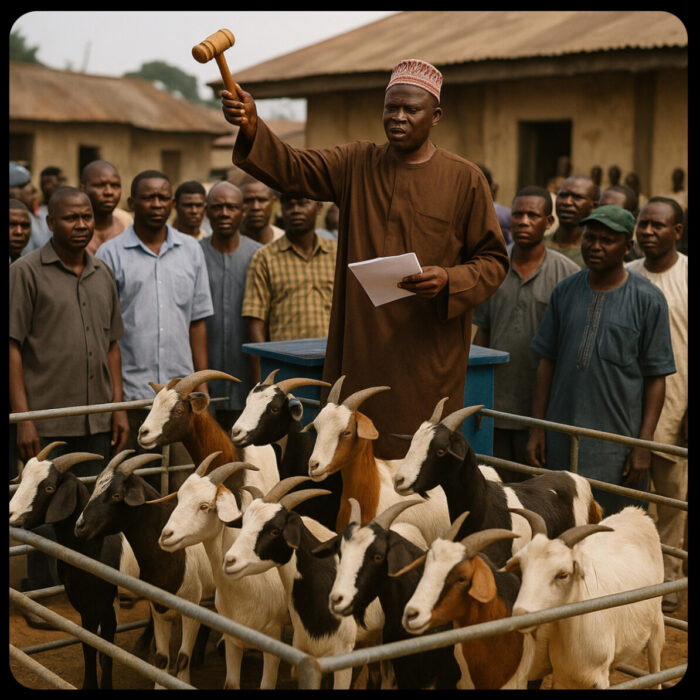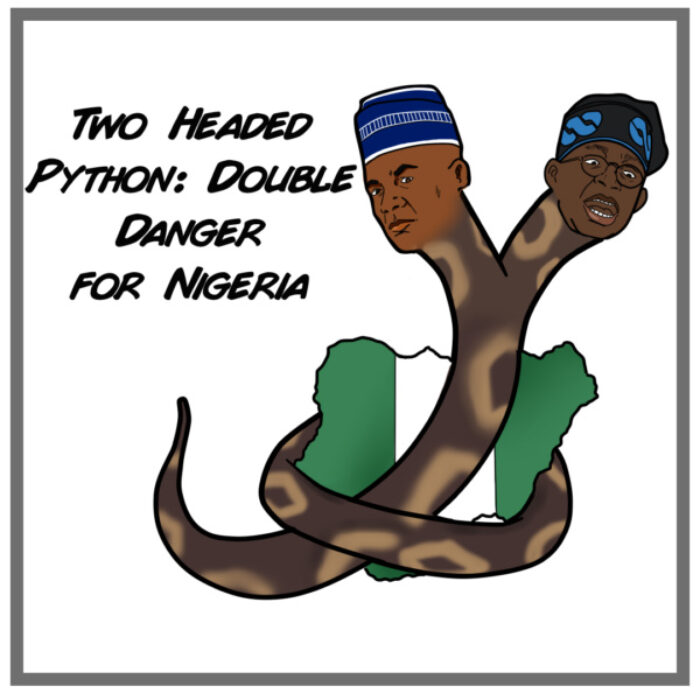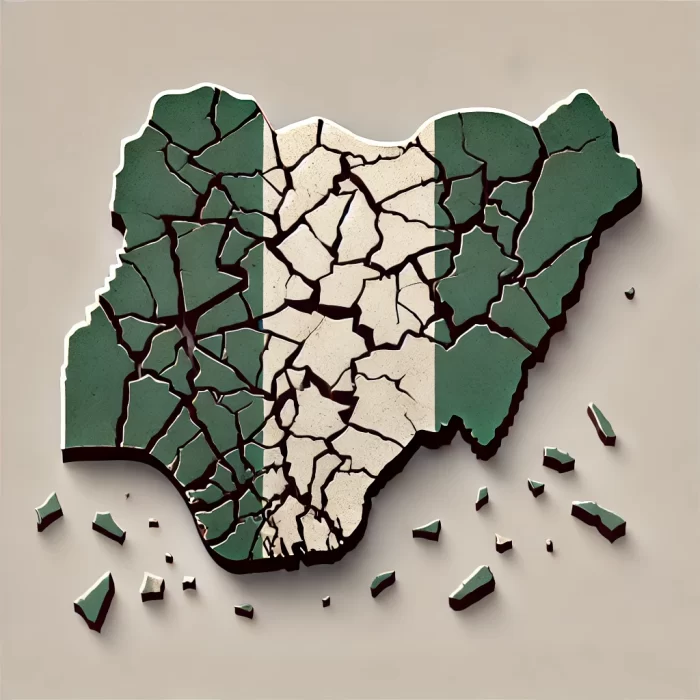Nnaoke Ufere
Publisher, The African Mind Journal
Washington, D.C.
November, 19, 2024
President-Elect Donald J. Trump
Mar-a-Lago
Palm Beach, Florida
Dear President-Elect Trump,
Re: Strategic Engagement To Secure Nigeria’s Stability, Democracy, And Prosperity
Congratulations on your election as President of the United States. As you prepare to assume office, I write to urge you to prioritize a coherent and impactful policy toward Nigeria—a nation of 235 million people, strategic to Africa’s stability, and a critical partner for global security and economic growth.
Nigeria is a nation of immense potential. With a dynamic youth population, industrious and creative citizens, and abundant natural resources, it stands as a beacon of possibility in Africa. From tech innovators leading startups to resourceful entrepreneurs and cultural icons influencing global trends, Nigerians have demonstrated resilience and ingenuity in the face of adversity. Its vast agricultural land, mineral wealth, and growing markets position Nigeria as a potential economic powerhouse capable of transforming the African continent.
However, this potential is undermined by a perfect storm of crises: bad leadership, economic mismanagement, systemic corruption, inequality, and widespread insecurity. These issues have crippled its economy, eroded public trust in government, and threatened its fragile democracy. As the United States champions global stability and democracy, your administration has a unique opportunity to challenge Nigeria’s failing leadership and help steer the nation toward a path of accountability, prosperity, and stability.
1. Champion Good Governance and Accountability
Nigeria’s leadership deficit has become the greatest obstacle to its progress. Endemic corruption and lack of transparency perpetuate poverty and inequality while siphoning resources meant for infrastructure, education, and healthcare.
The United States can:
• Leverage Diplomatic Pressure: Use your administration’s influence to advocate for governance reforms and support whistleblowing and anti-corruption initiatives through strategic partnerships with Nigerian civil society organizations. Your administration should deny U.S. visas to corrupt officials and their families, and impose targeted sanctions on those looting public funds. Let it be clear that the U.S. will not be complicit in shielding bad actors from justice.
• Enforce Accountability: The United States possesses critical intelligence on individuals who have looted Nigeria’s resources, including the location of stolen funds and hidden assets. Sharing this information with Nigerian authorities and international anti-corruption bodies can help bring these criminals to justice and ensure the recovery of stolen assets for the benefit of the Nigerian people. Under your leadership, the U.S. must lead by example by repatriating looted funds held in its financial institutions, along with illicitly acquired assets, back to their rightful owners: the Nigerian people. In addition, FBI should set an example by making as much detailed information as possible about corrupt Nigerian politicians in its foreign corruption intelligence database publicly accessible. This would underscore a strong commitment to accountability and transparency.
2. Drive Economic Revitalization
Nigeria’s economy, over-reliant on oil, has suffered from poor diversification, mismanagement, and the effects of global energy shocks. Inflation, unemployment, and hunger are at record highs.
The United States can:
• Support Economic Diversification: Facilitate investments in Nigeria’s agricultural, manufacturing, and technology sectors through programs like Prosper Africa. Encourage U.S. companies to explore opportunities in non-oil industries.
• Promote Energy Security: Assist Nigeria in developing a robust renewable energy sector to reduce its dependence on oil and ensure energy access for millions living without electricity.
• Strengthen Trade Relations: Designate Nigeria as a favored trading partner by easing the export process for Nigerian goods to the U.S. markets. Eliminate tariffs on key products like agricultural goods, textiles, and raw materials, which currently hinder Nigeria’s ability to compete globally. Expanding access to the U.S. market for these exports would stimulate job creation, empower local industries, and enhance bilateral trade relations to the benefit of both nations.
3. Enhance Security Cooperation
Insecurity is Nigeria’s most pressing challenge, with insurgencies, kidnappings, and communal conflicts escalating daily. Boko Haram, banditry, and separatist movements continue to destabilize the region.
The United States can:
• Provide Targeted Military Assistance: Equip and train Nigerian forces with counterinsurgency expertise while ensuring human rights are respected.
• Expand Intelligence Sharing: Enhance collaborative efforts to track and neutralize terrorist networks operating across the Sahel.
• Address Root Causes of Conflict: Support initiatives to tackle poverty, education gaps, and resource competition fueling unrest in vulnerable regions. In the long run, this is a mutually beneficial approach for both Nigeria and the U.S.
4. Strengthen Democracy and Human Rights
Nigeria’s democracy is under siege from electoral malpractice, media repression, and judicial interference. The 2023 presidential election and the recent 2024 governorship elections revealed a troubling trend of vote buying, vote rigging, voter suppression and disenfranchisement.
The United States can:
• Support Electoral Integrity: Advocate for reforms in Nigeria’s electoral process, including the independence of the electoral commission, the judiciary, electronic voting, and credible vote counting mechanisms.
• Defend Civil Liberties: Push for the protection of press freedom, freedom of assembly, and the rule of law as pillars of a functioning democracy.
• Engage Youth Leaders: Invest in programs that empower Nigeria’s vibrant youth population, who are critical to the nation’s democratic future.
5. Foster Stronger U.S.-Nigeria Relations
Nigeria’s strategic importance cannot be overstated. It is Africa’s largest economy, a major trading partner, and a linchpin for regional security. Strengthening this relationship aligns with U.S. interests in combating terrorism, expanding markets, and promoting global stability. Nigeria is too big to fail.
Conclusion
President-Elect Trump, Nigeria is at a crossroads, and U.S. policy can be the decisive factor in shaping its future, complementing the will, resilience, and ingenuity of its people, who are determined to overcome challenges and unlock their nation’s vast potential. By challenging bad leadership, promoting democracy, and driving economic growth, your administration can help Nigeria unlock its vast potential and, in turn, enhance U.S. interests and global stability.
This is a defining moment to demonstrate the values of the United States—justice, freedom, and opportunity—by standing with Nigeria and its people.
Sincerely,
Nnaoke Ufere
Publisher, The African Mind Journal




